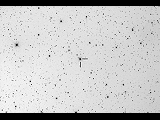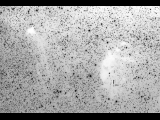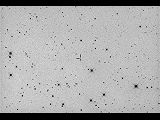
Following the general meeting of the IAU in 2006, a new classification scheme was released for the various members of the solar system and
which was inspired by the 2003 discovery of Eris, a Kuiper belt object beyond the orbit of Pluto and which happened to be also larger than
Pluto by about 100 km. To be more specific, the three categories adopted where (1) planets, (2) dwarf planets and (3) small solar system
bodies.
Dwarf planets are similar to planets in the sense they orbit the sun and have sufficient mass so that gravitational forces lead to a generally
round shape but which have failed to clear their orbit of debris due to a lack of a dominating gravity. Using this definition, the solar system
is now characterized with eight (and not nine) planets, five dwarf planets (Pluto, Ceres, Iris, Makemake and Haumea) and various small solar
system bodies excluding satellites.
Three members of the asteroid belt (Vesta, Pallas, Hygieia) as well as over 40 trans-Neptunian objects (Orcus, Ixion, Huya, Varuna, Quaoar,
Sedna etc) are believed to eventually be classified as dwarf planets.
 Ceres in Tau |
 Pluto in Sgr |
 Eris in Cet |
 Makemake in Com |
 Haumea in CVn |
 Sedna in Tau |
 Orcus in Sex |
 Quaoar in Oph |
 Varuna in Gem |
 Vesta in Xxx |